Along the way we stopped at the overlook for the Checkerboard Mesa, an iconic 6,520 foot-tall sandstone summit. The recent snows covered up the mesa's distinctive lines that resemble a checkers game board.

We soon left Zion and drove across southern Utah. Eventually we reached the Dixie National Forest, which covers 2 million acres and sits just outside of Bryce Canyon. The road passes by a few red rock formations, and also through this small tunnel.
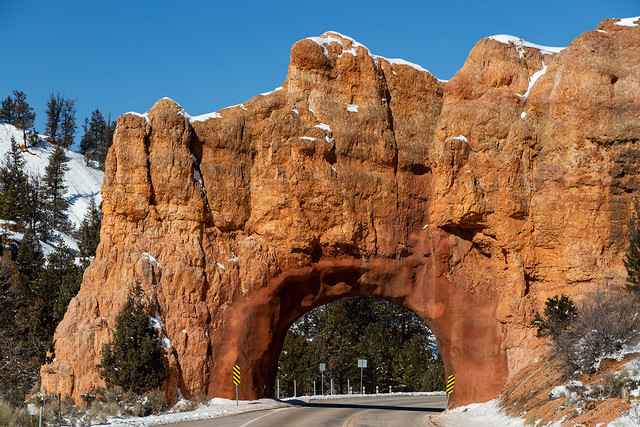
We soon made it to Bryce Canyon. After taking a quick look around the visitor's center, we headed off to one of the overlooks. The recent snows were deep here, probably about a foot deep.
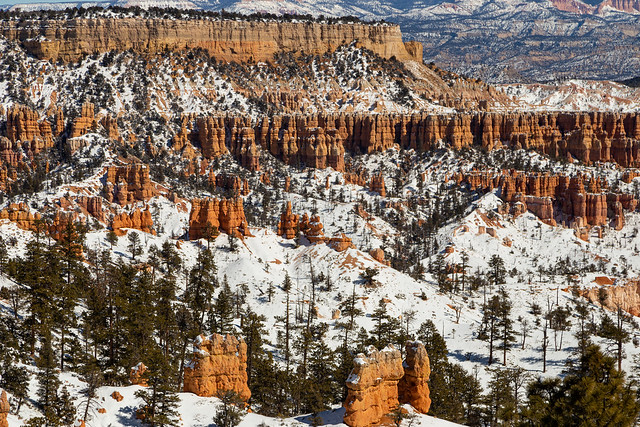
We walked along part of a trail that follows the rim around the Sunrise Point overlook, which was really just a channel that was cut through the deep snow.
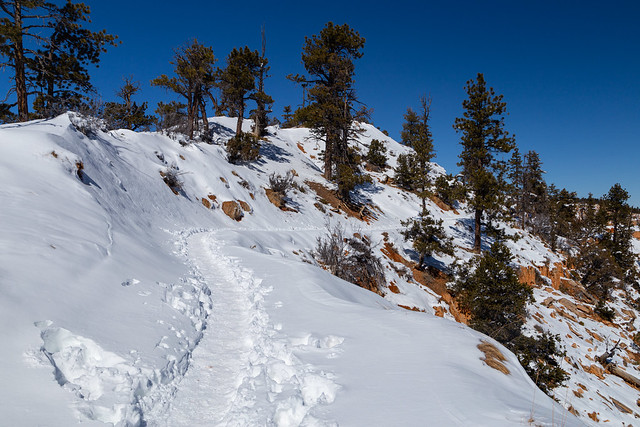
Despite its name, Bryce Canyon isn't actually a canyon. It's a series of large natural amphitheaters along the Paunsaugunt Plateau, which sits at an elevation of about 7,000–9,300 feet.

Bryce Canyon is famous for its hoodoos - the tall thin spires that were caused by a combination of frost weathering and erosion on the sedimentary rocks. Native American legend states that the hoodoos are the petrified remains of ancient beings who had misbehaved.
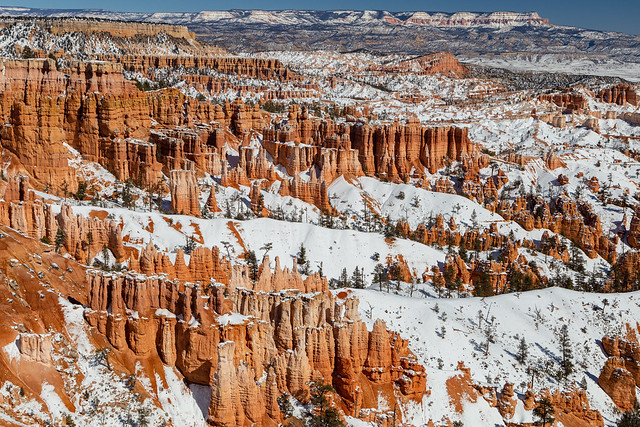
One of the most famous hoodoos in the park is Thor's Hammer, which was not named after the Marvel movies.
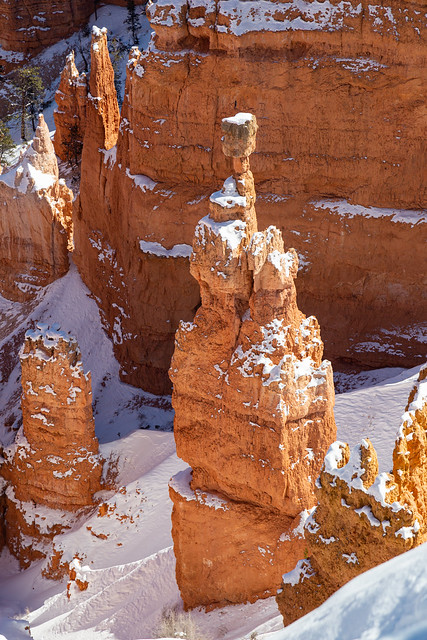
This view of Thor's Hammer was taken at Sunset Point, which is one of the more popular overlooks in the park.

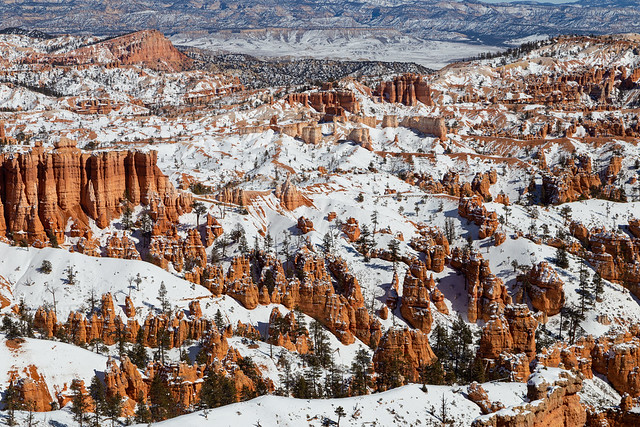

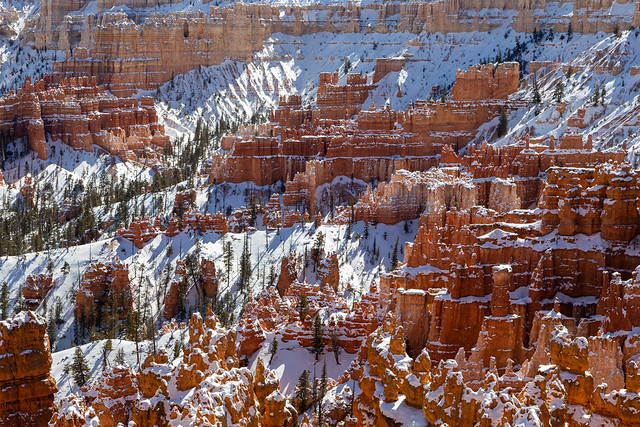
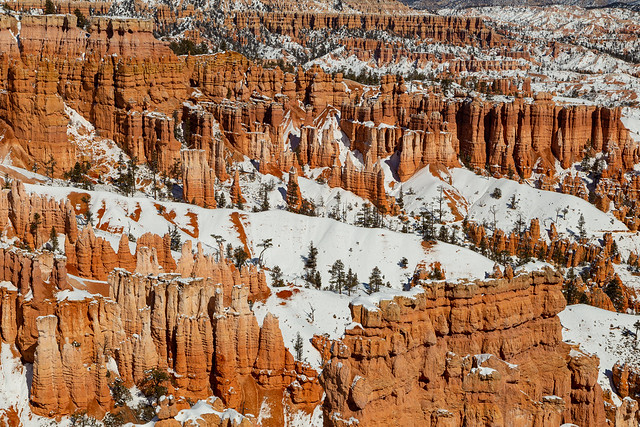
The next overlook we visited was Inspiration Point, which was actually quite inspirational.
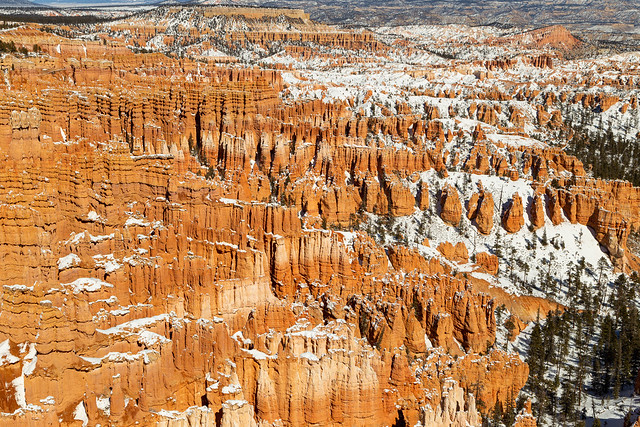


The next overlook we visited was at Bryce Point, which provides an expansive view. The overlook, and the park itself, are named after Ebenezer Bryce. Ebenezer was a Mormon pioneer who travelled west with Brigham Young. In 1870, he settled in the lands around Bryce Canyon. Of the amazing natural beauty that surrounded him, Bryce is quoted as saying that "It's a hell of a place to lose a cow."

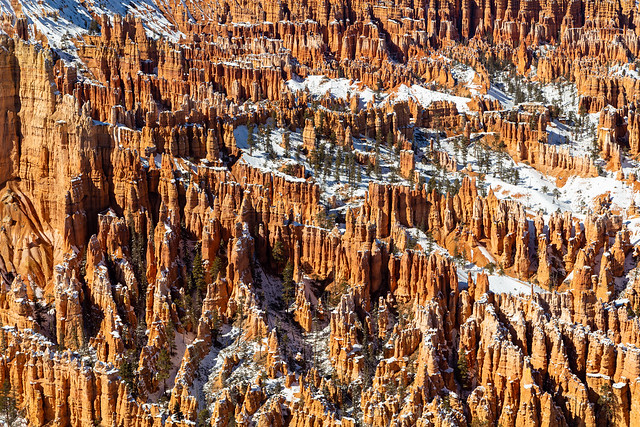
In 1916, the scenic beauty of Bryce Canyon was described in articles in a magazine published by the Union Pacific and Santa Fe railroads. But even with the publicity, very few people visited Bryce Canyon. There were no accomodations, and travel to the area was still difficult. In 1923, Bryce Canyon was declared a National Monument. A few years later, Bryce Canyon was officially named a National Park in 1928.
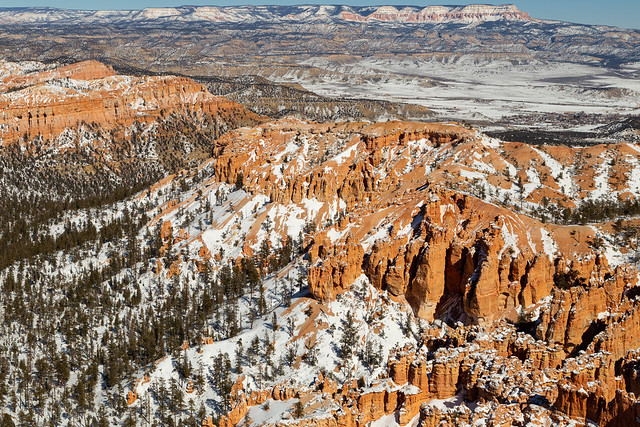
We headed onto the scenic drive, which visits a few other overlooks. The drive had recently been closed due to the snow, and had just reopened. One of the first stops was at the Swamp Canyon overlook.
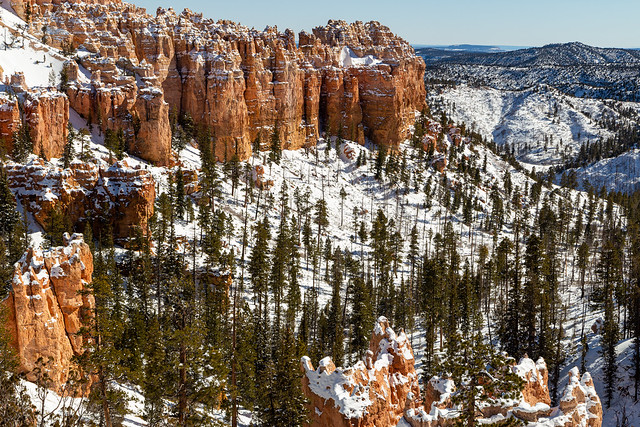
A popular spot on the drive is the Natural Bridge, an arch of eroded red-sandstone.

The last stop was at Rainbow Point, which sits at an elevation of 9115 feet. On clear days it's said you can see for 100 miles. It is amazing that from here you can't see any traces of human activity. No roads, no shopping centers, no suburban sprawl. Just miles and miles of untouched nature.


The light had been sunny and harsh the entire time we had been there, so I wanted to stay to sunset when the light would be more photogenic. So we tried to determine which overlook would we be the best to catch the light at dusk. Should we be rebellious and try to see the sunset from Sunrise Point? After some deliberation, we decided to revisit Inspirataion Point.

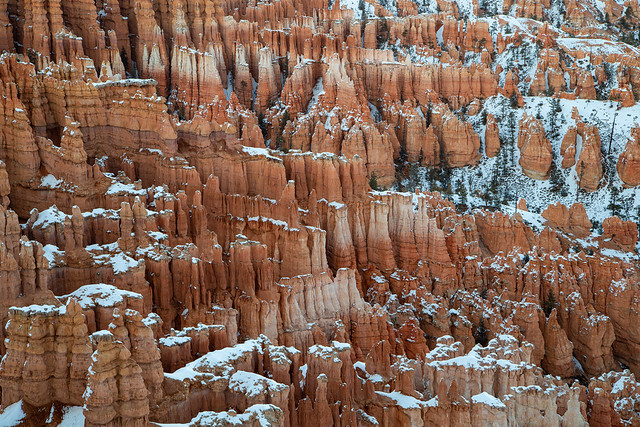
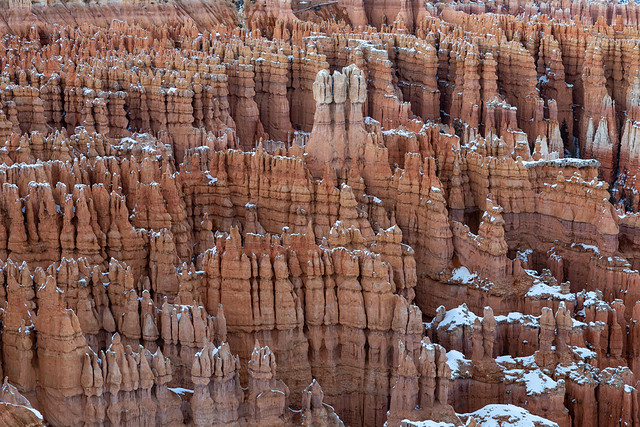
It was an amazing and breathtaking view. Especially as the hoodoos and rock formations seemed to glow in the fading light at the end of the day.
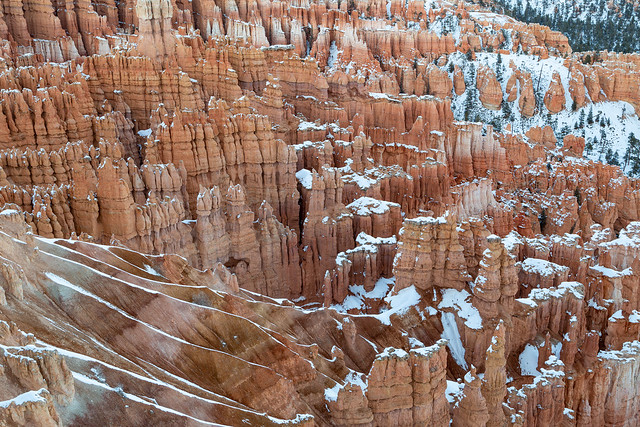
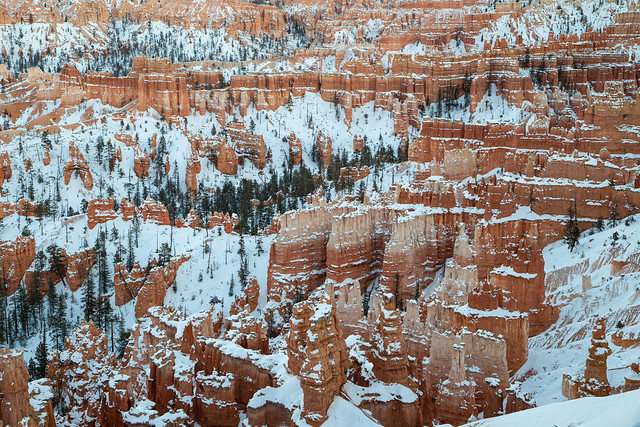
It had been cold the entire time we were there (below freezing), but it got even chillier as the sun sank below the horizon.




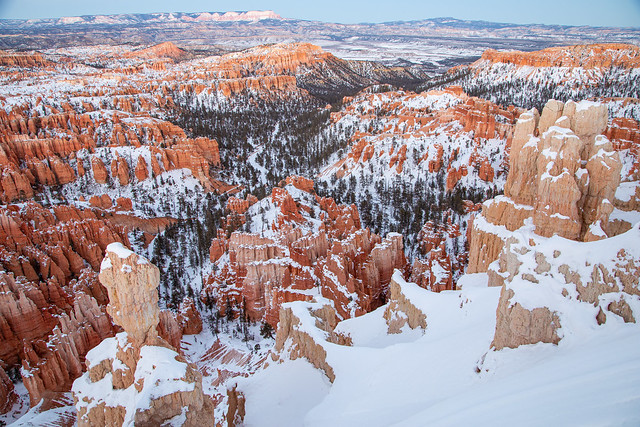
It's amazing how the rocks seemed to hold onto the light and still glow, even after the sun sank below the horizon. Bryce Canyon is an amazing place, and I wanted to keep on taking pictures.

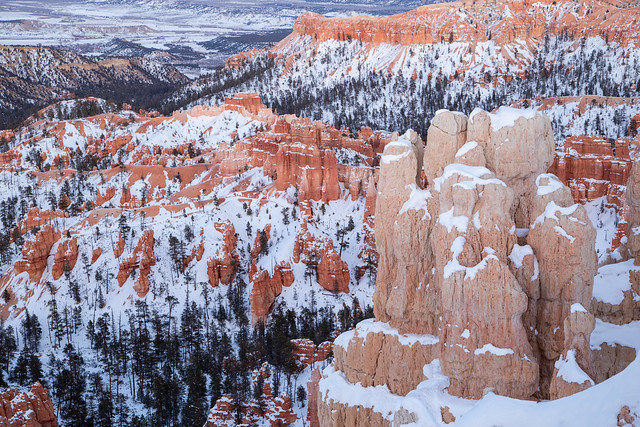
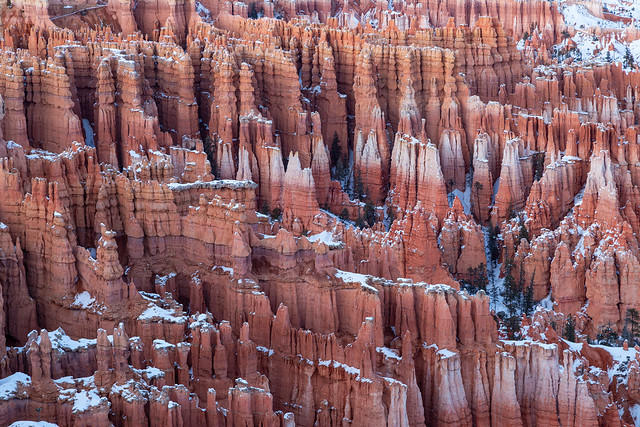
And finally one last shot from Bryce Canyon. It was hard to put the camera away when standing at a place like this.

It was starting to get dark, so I headed back to the car. We then made the two hour drive back to our hotel, where we sadly packed up our things. Early the next morning we drove back to Las Vegas and then flew home, eager to see the kids again.

No comments:
Post a Comment